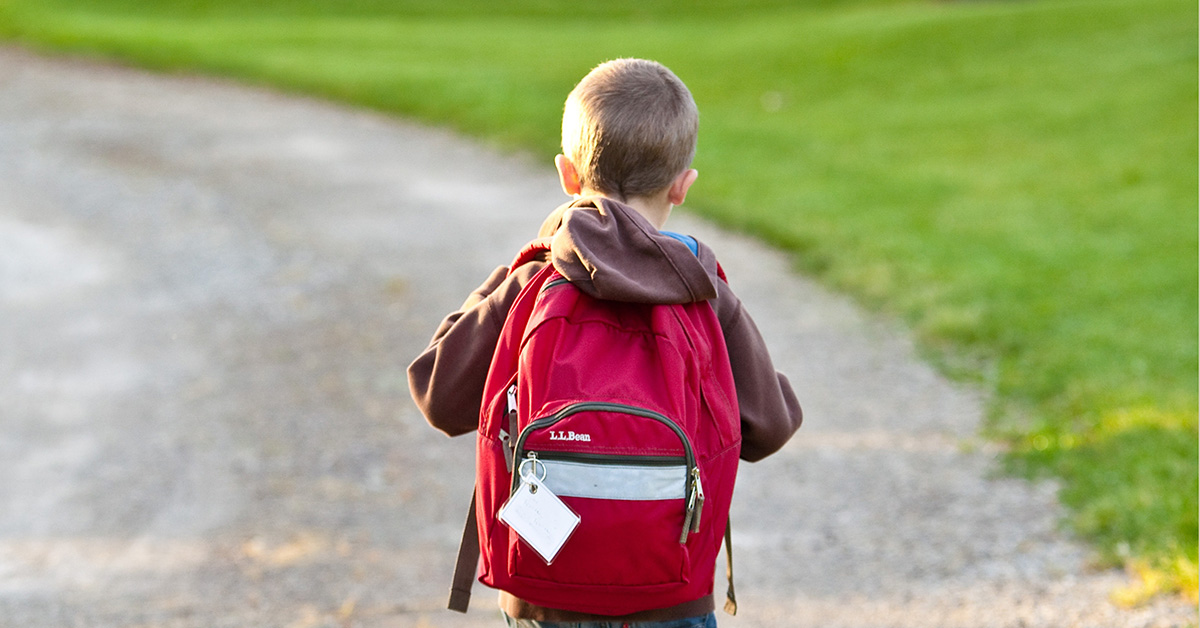
It’s that time when parents are preparing to send their children back to school!
Start with a good sleep schedule and evening routine about a week before school begins.
We call this “sleep hygiene.” Good sleep hygiene is more effective for quality sleep
than taking sleep medication. It includes an evening routine that signals the brain
it is time for bed. This may include a snack, bath, brushing teeth and reading time.
It does not include looking at electronics because they emit a type of light that
tells the brain to stay awake. Avoid those devices for one to two hours before expecting
to be asleep. A restful night’s sleep should result in waking up happier the next
morning and better attention and concentration for your little one.
Speaking of attention and concentration, parents ask how to optimize these skills
for better school performance. For the majority of children, attention and concentration
are skills that are continuously developing as the brain grows. A kindergartener who
turns 6 years old at the beginning of the school year will likely have much better
attention and concentration than one who turns 6 at the end of the school year.

Some kiddos have symptoms which warrant medication to improve attention and concentration
but for most, simple interventions work. Children's brains require frequent breaks
from structured activity. For every 40 minutes of learning, kids’ brains benefit from
a 15-minute break of moving their bodies through play, preferably outdoors. This can
improve attention and concentration as well as emotional regulation.
Difficulty regulating emotions might come from sitting still but it also may signal
that the child needs support. Transitions can be difficult but if a child seems to
worry more than peers, it can be helpful to provide strategies. What is definitely
NOT helpful is avoiding the worry by not talking about it or delaying dealing with
the worry. Avoidance causes fear of the stressor to grow.
Strategizing with coping skills increases a child’s sense of control. If a child talks
about a stressor happening at school, ask, “What could you do if that happens?” This
approach helps them improve problem-solving skills and effective navigation of stressors
they are likely to face more than once.
Role playing can also be effective. If a child is very nervous about the new school
year, arrange to visit the school before the school year begins. This can be done
at Meet the Teacher night, but because of the extra people at the school, it can be
overwhelming.
For many children, these strategies will help them ease into school. However, if the
child is not acting like the kid you know, talk with your pediatrician. Some children
benefit from talking with a therapist.

If a child is worried about bullying, use the problem-solving approach described above
to help children realize that bullying behavior has nothing to do with the “victim.”
That person just happens to be the target. Ask, “What do you think might be going
on with that kiddo that would have them act so mean toward another person?” Phrased
this way moves the problem from the “victim” to the “bully.”
Those words are in quotes because there is so much truth to it. Children act out what
is modeled for them or what is done to them. Bullying behaviors are more common in
children who have witnessed these behaviors in role models and in those who have been
the victims of bullies or trauma.
It is important for the parent of the “victim” to let the school know what is happening
so the school can wrap services around the identified bully and help that child navigate
toward more socially appropriate behaviors. If a child continues to feel victimized,
if it becomes physical, or if the child is in danger, get the teacher and school administration
involved. We must teach children that we believe in their abilities to navigate this
world effectively, but they are not alone. We are here as a resource and to be helpful
especially when it comes to keeping our children safe.
Visit www.stopbullying.gov for more tips. I wish you all a happy transition back to school this year!
Sarah Mallard Wakefield, M.D., is chair for the Department of Psychiatry of the Texas
Tech University Health Sciences Center School of Medicine.
